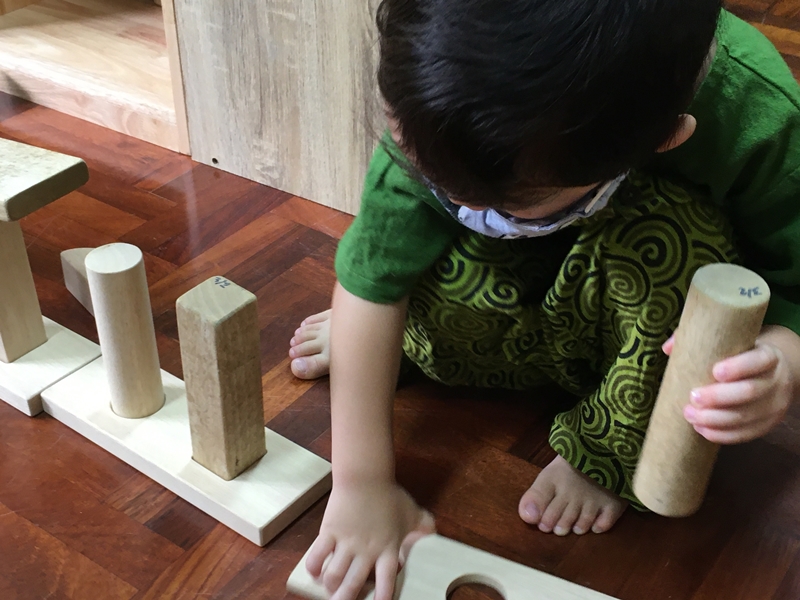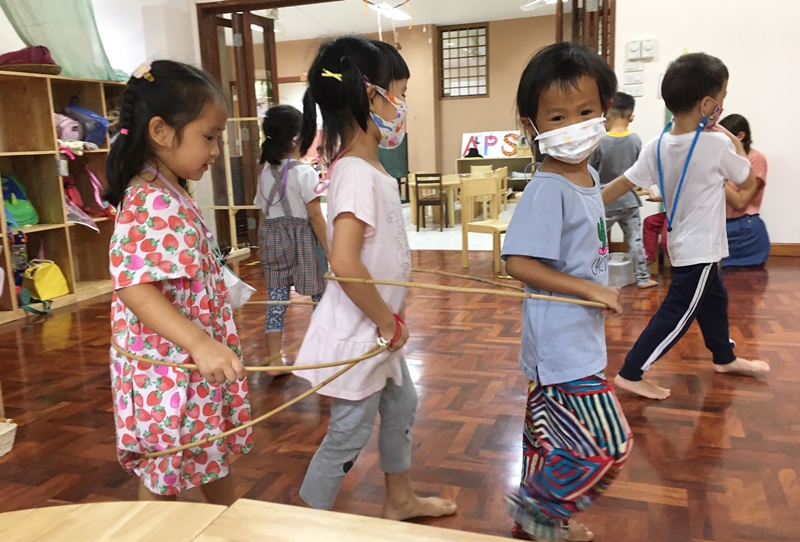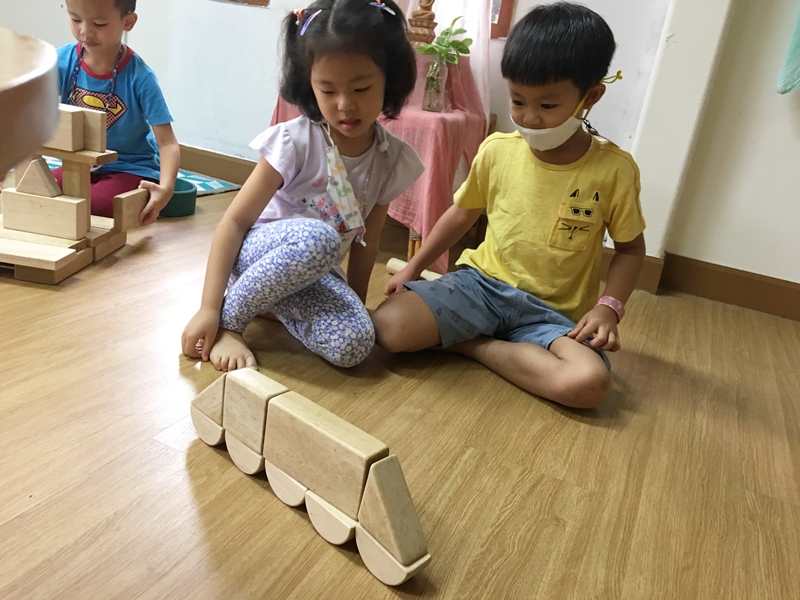
Learning by Living: The Importance of Free Play
 One day in River Room, three girls found a new way to make a game using hula hoops. Another day during free play, a KG1 girl watched as two older KG3 boys built a slide and swimming pool out of the colorful mini-blocks. Later, she built something of her own.
One day in River Room, three girls found a new way to make a game using hula hoops. Another day during free play, a KG1 girl watched as two older KG3 boys built a slide and swimming pool out of the colorful mini-blocks. Later, she built something of her own.
According to Teacher Gift (the team leader for the KG English Program), when she observes her classroom, she notices how a child may:
“negotiate for some blocks he needs to share. I can see the KG1 student tries first, tries to grab it and then KG2 will complain. The younger child will argue back about his reasons. For sure, he doesn’t have much language to argue with his older peer. So, he always walks to me and asks me for help to deal with those situations. And I can see that this is an opportunity to engage with this situation, so I guide him just a little bit with the words like, ‘Can you try to ask KG2 like this? And then you walk back to tell me.’”
 She observes that the student needs someone to be his backup. But she didn’t go with him. She told him, “I will stand here, but I will look when you are talking to him. I still support you, but will not stand next to you because you can do it.” Then he walks over and tries to talk with the KG2 student about the desired blocks. Sometimes it works, sometimes it doesn’t.
She observes that the student needs someone to be his backup. But she didn’t go with him. She told him, “I will stand here, but I will look when you are talking to him. I still support you, but will not stand next to you because you can do it.” Then he walks over and tries to talk with the KG2 student about the desired blocks. Sometimes it works, sometimes it doesn’t.
Teacher Gift realizes that teachers (and parents) need to be supportive of children when they ask for guidance, but that interfering too much can take away from the child’s own capacity for learning to negotiate her or his own social world. Mistakes are okay, and students should not be afraid to try, even if they do not always achieve their purpose right away.

